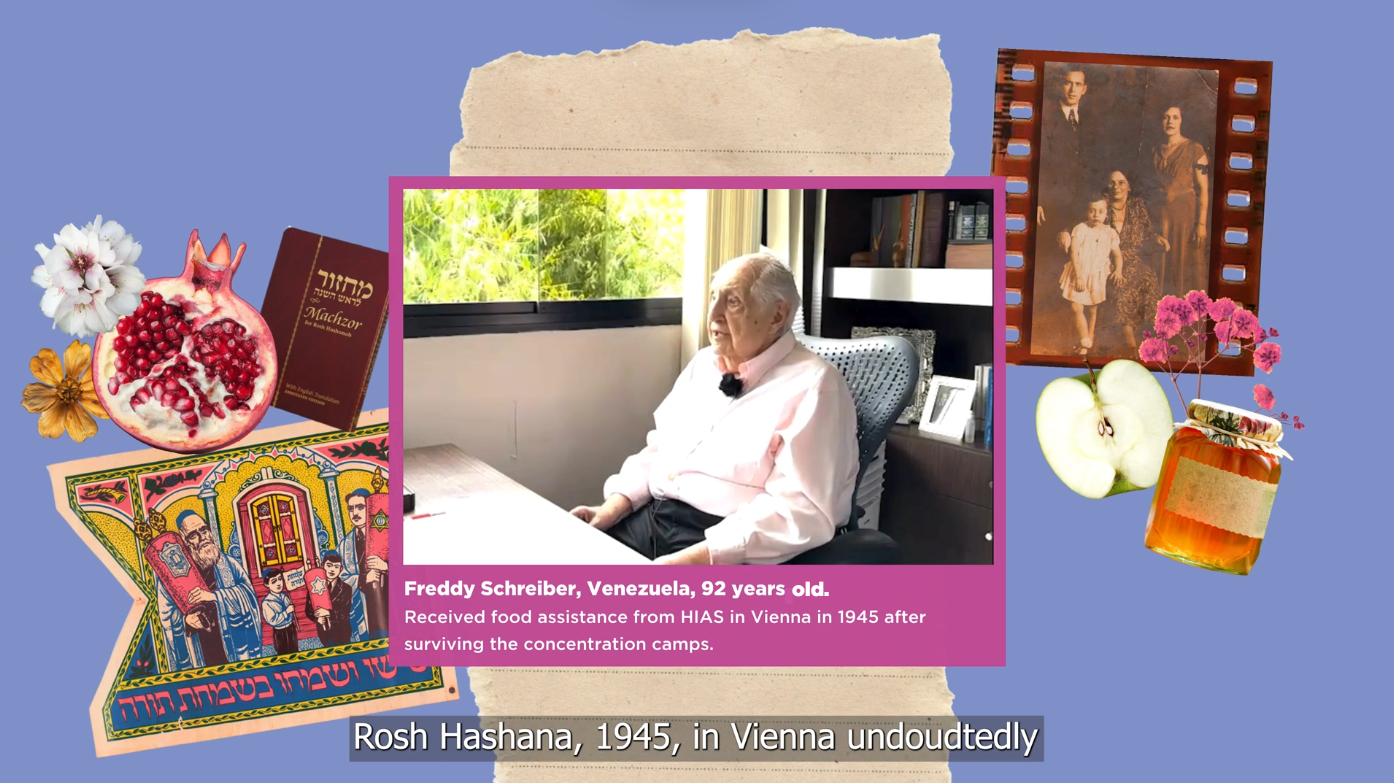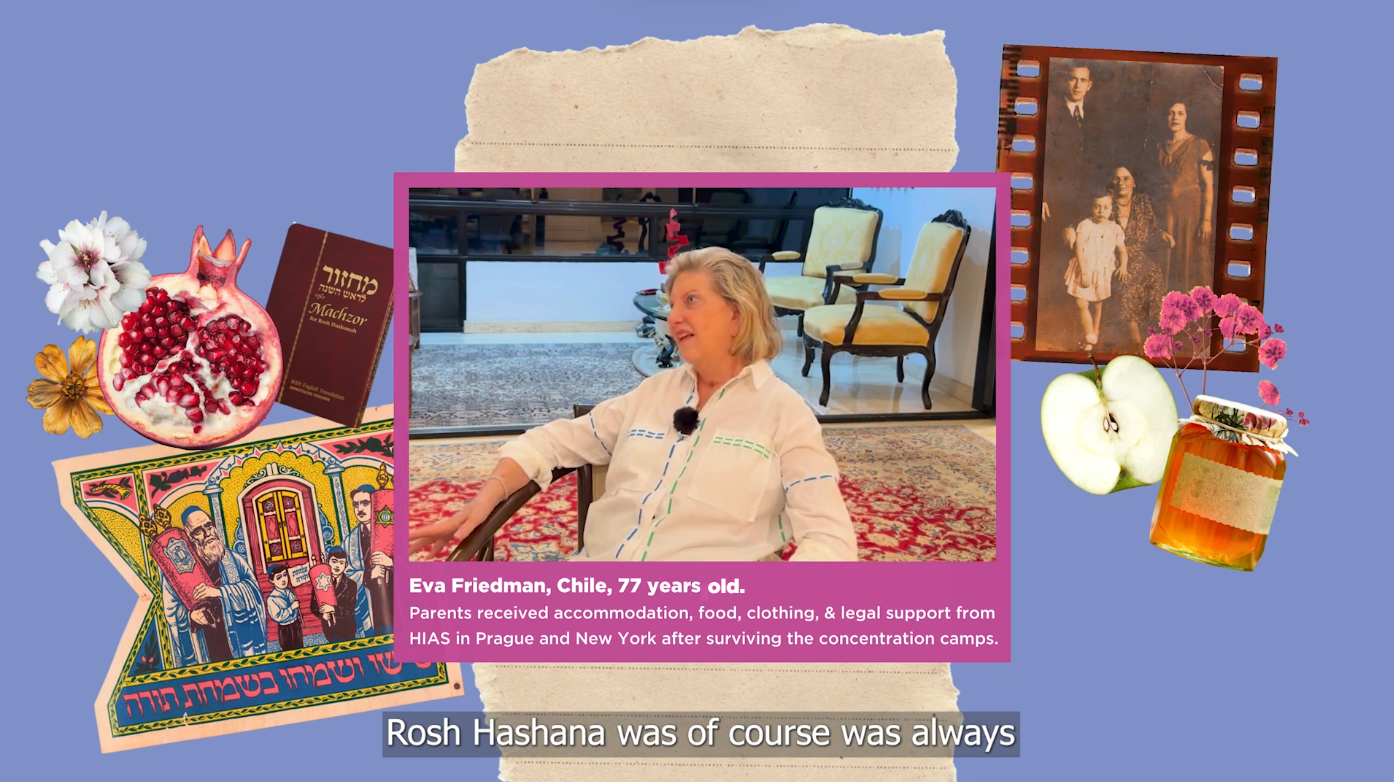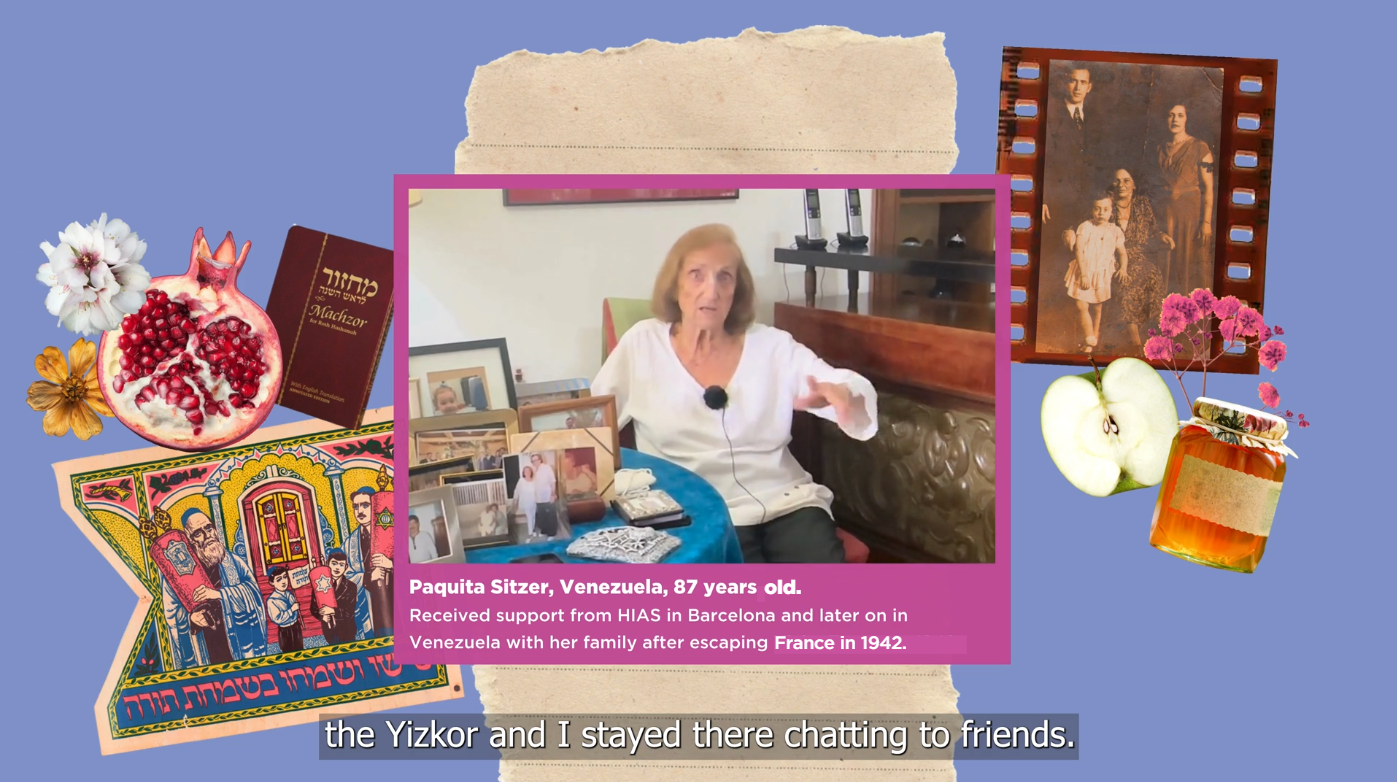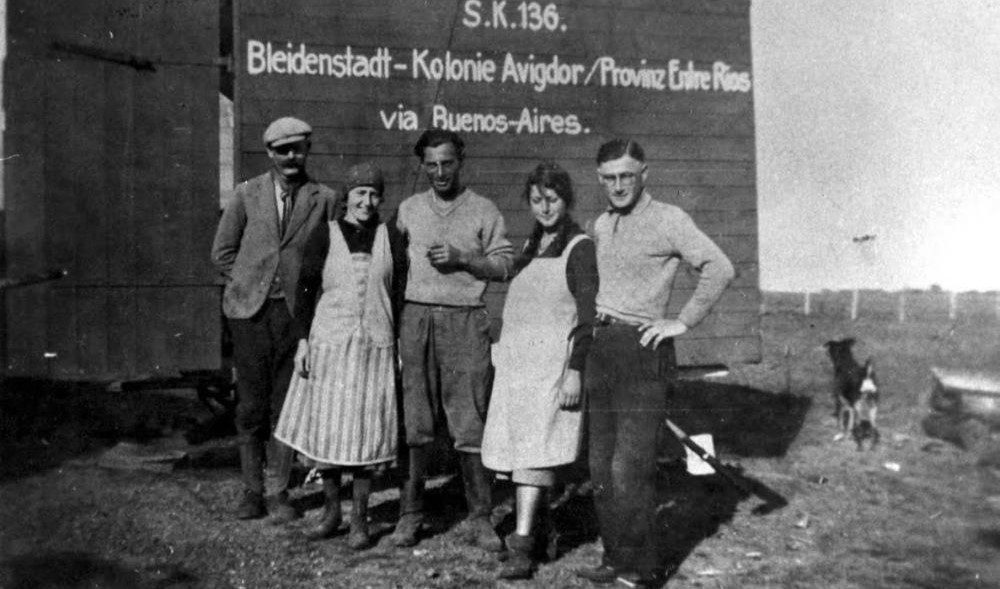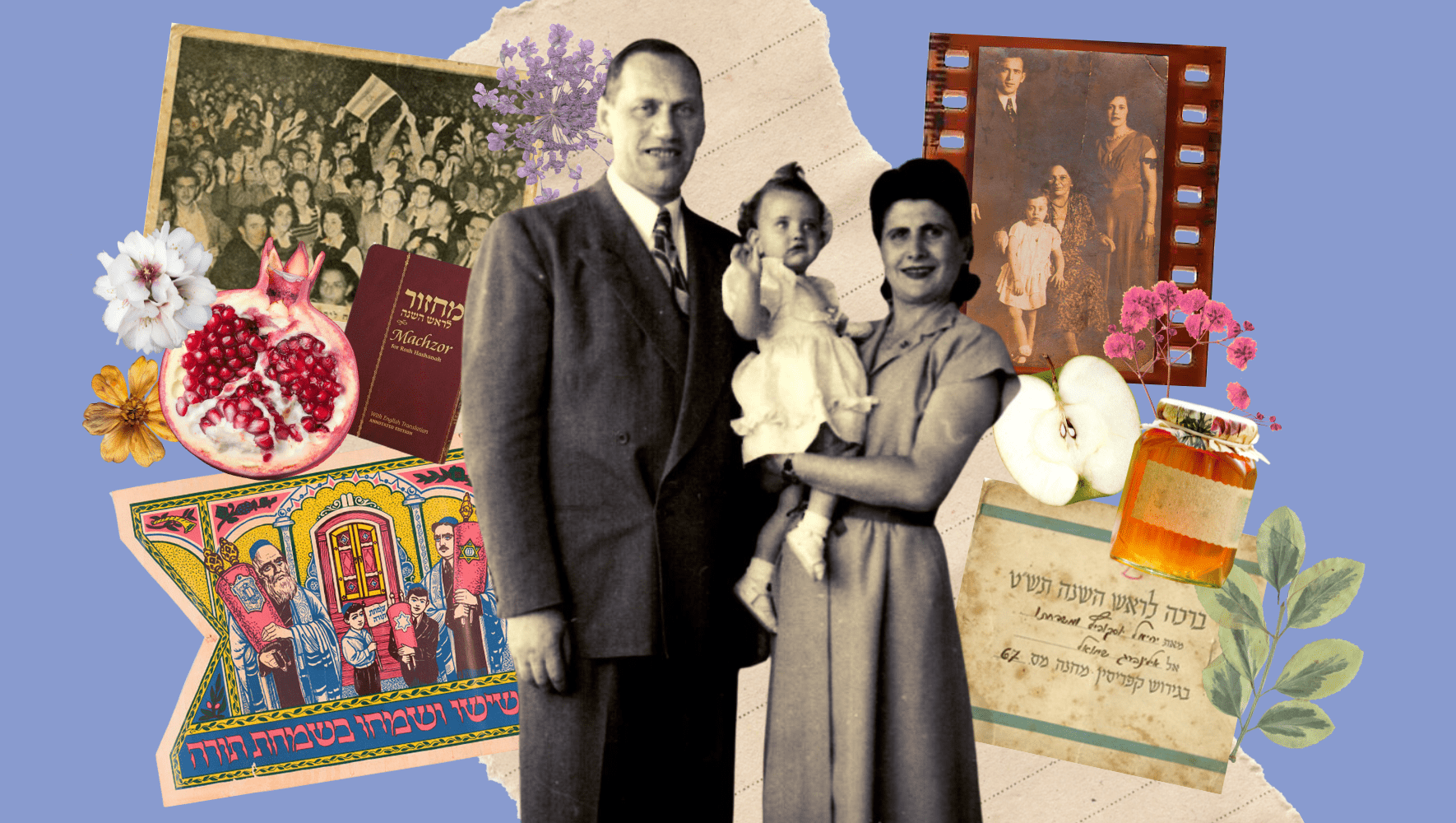
HIAS was established in New York over a century ago to support Jewish refugees fleeing from the pogroms in Russia and Eastern Europe. Following subsequent tragedies, like the Farhood in Iraq, the Holocaust, and the expulsion of Jewish communities from Egypt, HIAS was there to help.
Most of the Jewish refugees that HIAS supported started new lives in the United States. However, many landed on their feet in Latin America.
To commemorate the High Holidays this year, we asked Jewish refugees across Latin America that received support from HIAS to share their best high holiday memories.
Freddy Schreiber

Freddy Schreiber as a child (L) and Freddy with his sister Ellie and aunt Bertha Weiss (R) in Kaiser park, Vienna, in 1937. Courtesy of Freddy Schreiber
Freddy Schreiber was born in Vienna in 1932. He was just six years old when Hitler invaded Austria in 1938, and his life turned upside down.
He recalls how his childhood friends began to use racist insults to refer to him, and how he could no longer go outside for fear of being attacked. They were eventually forced to move to a ghetto, and then Freddy was separated from two siblings who traveled to England on Kindertransport in 1939.
Freddy and his parents survived the concentration camps after they were liberated by the Russians. They began receiving food aid from HIAS in Vienna, who would send them packages that contained items such as canned meat, beans, and chocolate every few weeks.
On Rosh Hashanah in 1945, Freddy and his parents received a telegram from his brother and sister – it was the first time they had heard from them in six years since they had left for England. It was a holiday they would never forget.
Eva Friedman

Photo of Pablo and Miriam Friedman taken in Ungvár in 1941. (Courtesy of Eva Friedman).
Adolf and Rosa Friedman, Eva’s parents, were captured by the Nazis in Hungary in 1944 after escaping from Czechoslovakia years earlier.
They were taken with their two children, Pablo and Miriam; their parents, and their siblings, to the concentration camps. Rosa stayed with her sister, whom she helped to survive starvation. After the fall of the Nazis, HIAS provided the two with accommodation support, food, and clothing in Czechoslovakia.
Rosa went to the train station every day to search for her missing husband. Months later, she finally located him in a hospital, where she discovered that he was one of only two men that survived a liberated camp out of over 5,000 who did not. After reuniting, she told Adolf that their children, Pablo and Miriam, and other family members, were tragically killed in the gas chambers.
Despite dealing with deep trauma and health issues, they found the strength to continue. They booked a boat ticket to the U.S., but decided later to travel to Chile. Rosa discovered that she was pregnant on the trip, and Eva, the miracle baby, was born in Santiago, Chile in 1947.
Eva fondly recalls spending Rosh Hashanah with her parents in Santiago as a child, when her mother made delicious challah, and they spent quality time together.
Paquita Sitzer

Paquita Sitzer (R) with her mother Estera Markowicz, taken in Pau, France between 1941-1942. Courtesy of Paquita Sitzer.
Paquita was born in Paris, France in 1933. There, she lived with her parents and her brother until 1940, when the Nazis invaded.
Her father was arrested shortly after by the authorities of Vichy France, but he managed to escape prison. From there, the family reunited in Paris where they made plans to travel together to safety in the south of France.
They stayed in the south of France for two years, but when the Nazis began closing in on the whole country, they crossed the Pyrenees mountains into Spain. From there, they travelled to Barcelona where they received support from HIAS.
HIAS provided them with food and accommodation as they waited for several weeks for their boat to depart for Venezuela.
Paquita has many memories of the high holidays, but Yom Kippur stands out to her the most as she would spend the day with loved ones and host a special meal to break the fast.
